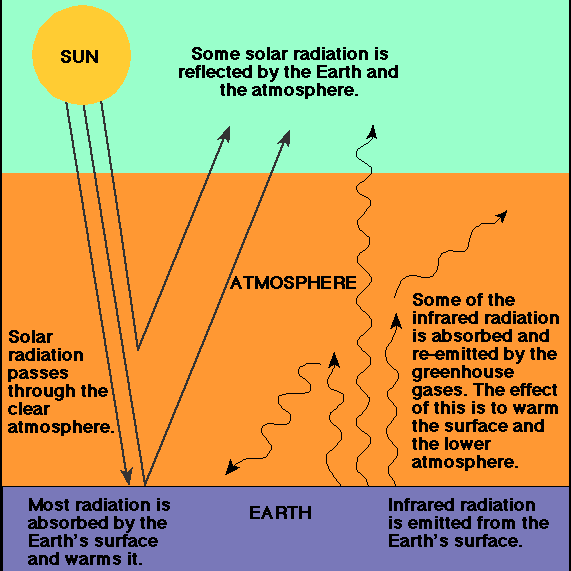
CO2 is incredibly efficient at letting the optical light through and trapping infrared radiation emitted from the ground, causing heat to build up in the lower atmosphere. Greenhouse effect Java demo

CO2 is incredibly efficient at letting the optical light through and trapping infrared radiation emitted from the ground, causing heat to build up in the lower atmosphere. Greenhouse effect Java demo